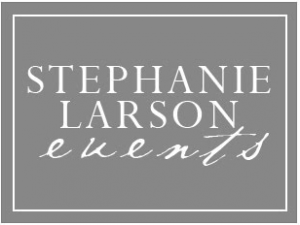Aug 13, 2013 What Can a Wedding Planner Teach Us About Strategic Event Planning?
Summer is well upon us. If you haven’t attended a summer wedding by now, you’ve attended three. And if you’re like me, you’ve wondered what similarities there are between wedding planning and strategic event planning.
I’ve recently gotten to know a wonderful young wedding planner named Stephanie Larson who lives and works right here in San Francisco. Her passion for her work struck a chord with me immediately, and so Wilsonwest recently spoke with her about how wedding planning best practices can apply to planning a corporate event.
***
WW: This is a broad question, but what, in your experience, makes a successful event?
SL: I’m drawn to events that appear to be very personal to the hosts. My company is really suited for smaller, more intimate weddings with a guest list of around 100-150 people. It’s a real gift if you end up having the opportunity to interact with everyone at your wedding. But that’s an ideal circumstance, of course. A lot of times, couples are under pressure from all directions about who to invite. In fact, the guest list is one of the hardest things for couples to manage.
WW: Absolutely. Now, many corporate events have a much larger “guest list” than weddings—so is there anything strategic event planning professionals can learn from the wedding planning process?
SL: One thing that’s really special about weddings is that once the ceremony is finished, people sit down and share a meal together. I think that this tradition really is a nice gesture for your guests and leaves them feeling included in your celebration. Corporate events that are designed to target, say, 100 to 200 VIPs can definitely accomplish this same effect by hosting an elegant dinner party. It can be a great way for people to connect, whether they’ve worked together for 20 years or are meeting for the first time.
WW: So, this might be an effective approach for a company that wants to make a deeper connection with 100 of its C-level customers?
SL: Exactly. My hunch is that it would work best with people with whom a company has already established a relationship. You schedule a keynote speaker, you plan a great meal, and that’s a relatively simple yet meaningful event for a small corporate group. Plus, when people are dining, they’re a perfect captive audience for any special messages you want to deliver.
WW: Right! Any tips about the specifics of the dinner itself?
SL: I do have one really specific suggestion: I enjoy planning dinners where people sit at long, narrow banquet tables instead of those big, round tables. This is a trend I really love! With the big, round tables, you can spend the whole evening feeling like you’re eight feet away from the people you’re trying to talk to. With the long banquet tables, you may end up speaking mostly with the three people closest to you, but they’re very close to you. I think that leads to more intimate connections. I’d encourage any corporate event planner to consider this type of seating at their next small dinner event.
WW: That’s a great tip. Are you seeing any other wedding trends that could apply to the corporate setting?
SL: More and more couples are considering unique, unconventional wedding venues. It could be a winery, or a “rustic vintage” location such as an old barn.
Now, I’m not suggesting that companies hold their executive board meetings in barns! My point is that sometimes it pays to think outside the box regarding the venue. The venue itself can be the most important tool to reflect the mood of the event.
WW: Any final tips from the wedding world for corporate event companies and planners?
SL: I always remind couples of a few basic principles: Spend your resources on the elements that will have the most positive effect on the guest experience. Avoid getting overwhelmed by all the ideas and options you see on sites like Pinterest. And avoid cluttering up your special event with too much “program.” In other words, prioritize your big day so that you and your guests will have the time and energy for the activities that matter most.
***
What sage advice! Thank you, Stephanie, for sharing your expertise with the Wilsonwest corporate event management community.

Sorry, the comment form is closed at this time.